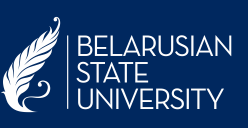
 |
Ïåäàãîãèêà èíôîðìàòèêè |
PEDAGOGY OF COMPUTER SCIENCE |
ISSN 2708-4124 |
|
USING THE UNIO SERVICE FOR ONLINE COMPUTER SCIENCE EDUCATION IN THE CONDITIONS OF NETWORK INTERACTION OF SCHOOLCHILDREN E.V. Danilchuk, N.U. Kulikova, A.I. Malova FULL TEXT: PDF (Rus) Abstract The issues of developing an online course in computer science based on the Union service, which allows for real-time networking between teachers and schoolchildren in the learning process, are considered. The relevance of creating an online course in computer science as a network educational community of schoolchildren and the formation of teacher readiness for this professional competence is substantiated. An example of the development of an author's online course in computer science in the Unio service is given, taking into account the specifics of network interaction in it (as part of the training of students of the Volgograd State Socio-Pedagogical University). Key words Online education, online educational communities, online course, Internet services. Acknowledgments. The reported study was funded by RFBR, project number ¹ 19-29-14064. Received: 09/01/2022; accepted for publication: 09/15/2022. For citation: ________________________________________ Danilchuk E.V., Kulikova N.U., Malova A. I. Using the UNIO service for online computer sci-ence education in the conditions of network interaction of schoolchildren. Electronic scientific and methodological journal “Pedagogy of computer science”. 2022;1-2. Http://pcs.bsu.by/2022_1-2/8ru.pdf Content is available under license Creative Commons Attribution-NonCommercial-ShareAlike 4.0 International License. About the authors: E.V. Danilchuk
N.U. Kulikova
A. I. Malova
References 1. Aleksandrova L.N. Potentsial sotsial'nykh setevykh servisov kak instrumental'noy bazy pri organizatsii kontrolya i otsenki znaniy obuchayemykh: nekotoryye teoreticheskiye i prakticheskiye aspekty. Continuum. Matematika. Informatika. Obrazovaniye. 2021;4(24):88-96. DOI 10.24888/2500-1957-2021-4-88-96. (In Russian) 2. Borisova N.V. Podgotovka budushchikh uchiteley informatiki k professional'noy deyatel'nosti na osnove setevogo vzaimodeystviya. Pedagogicheskaya informatika [Pedagogical informatics]. 2019;4:78-85. (In Russian) 3. Lapo A.I. Pereosmysleniye roli informatiki. Pedagogika informatiki [Pedagogics of informatics]. 2021;3:36-46. [Electronic resource]. Minsk, 2021. Available at: http://pcs.bsu.by/2021_3/5ru.pdf. (In Russian) 4. Beshenkov S.A., Shutikova M.I., Ryzhova N.I. Formirovaniye soderzhaniya kursa informatiki v kontekste obespecheniya informatsionnoy bezopasnosti lichnosti. Vestnik RUDN. Seriya: Informatizatsiya obrazovaniya. 2019;16(2):128-137. (In Russian) 5. Bosova L.L. Sovremennyye tendentsii razvitiya shkol'noy informatiki v Rossii i za rubezhom. Informatika i obrazovaniye [Informatics and education]. 2019;1(300):22-32. (In Russian) 6. Bosova L.L. Kak uchat programmirovaniyu v XXI veke: otechestvennyy i zarubezhnyy opyt obucheniya programmirovaniyu v shkole. Informatika v shkole. 2018;6(139):3-11. (In Russian) 7. Sergeev A., Kulikova N., Danilchuk E., Borisova N. Online Educational Platform as a Web Content Management System in the Organization of Student-Teacher Interaction // CoMeSySo: Proceedings of the Computational Methods in Systems and Software, Zlin, Czech, 01 oktyabrya 2021 goda. Zlin, Czech: Springer, 2021. P. 846-856. DOI 10.1007/978-3-030-90321-3_70. 8. Kulikova, N. YU., Danil'chuk Ye. V., Sergeyev A. N. Onlayn-obucheniye shkol'nikov informatike na osnove veb-platformy s interaktivnymi plakatami: teoriya i opyt realizatsii. Informatika i obrazovaniye [Informatics and education]. 2021;6(325):29-37. DOI 10.32517/0234-0453-2021-36-6-29-37. (In Russian) 9. Kastel's M. Galaktika Internet: razmyshleniya ob Internete, biznese i obshchestve. Yekaterinburg: U-Faktoriya, 2004. 328 p. (In Russian) 10. Miklyayeva A.V., Bezgodova S.A. Eksperimental'no-psikhologicheskoye issledovaniye «Klipovogo myshleniya»: rezul'taty aprobatsii programmy eksperimenta. Izvestiya Irkutskogo gosudarstvennogo universiteta. Seriya: Psikhologiya. 2016;17:59-67. (In Russian) 11. Orlov A.A. Portret «setevoy lichnosti» v kontekste teorii pokoleniy. Pedagogika [Pedagogy]. 2019;10:12-23. (In Russian) 12. Radayev V.V., Medvedev S.A., Talalakina Ye.V., Dement'yev A.V. Pyat' moikh glavnykh vyzovov v prepodavanii. Voprosy obrazovaniya. 2018;1:200-233. (In Russian) 13. Danil'chuk, Ye. V., Kulikova N. YU., Kartashova A. V. Razrabotka onlayn-kursa s ispol'zovaniyem servisa Unio dlya obucheniya matematike v usloviyakh setevogo vzaimodeystviya shkol'nikov // Informatizatsiya obrazovaniya - 2022: sbornik materialov Mezhdunarodnoy nauchno-prakticheskoy konferentsii, Lipetsk, 25–27 maya 2022 goda. Lipetsk: LGTU, 2022. P. 161-168. (In Russian) 14. Vashukova I.S. Osobennosti setevogo vzaimodeystviya v obrazovanii. Otechestvennaya i zarubezhnaya pedagogika. 2022;1(82):141-152. DOI 10.24412/2224-0772-2022-82-141-152. (In Russian) 15. Shilova O.N., Yakushkina M.S. Setevoye vzaimodeystviye – sotsiokul'turnyy fenomen sovremennogo mira. Novyye obrazovatel'nyye strategii v sovremennom informatsionnom prostranstve: sb. nauch. st. SPb.: Izd-vo Lema, 2014. P. 81–85. (In Russian) 16. Andrews R. Does e-learning require a new theory of learning? Some initial thoughts. Journal for Educational Research Online. 2011;3(1):104-121. (In Russian) 17. Wanner T., Palmer E. Personalising learning: Exploring student and teacher perceptions about flexible learning and assessment in aflipped university course. Computers & Education, 2015;88(10):354–369. (In Russian) 18. Krotenko T.YU. Problemy i vozmozhnosti sistemy elektronnogo obucheniya. Vestnik GUU. 2020;5:65-70. (In Russian) 19. Zakharova M.B. Tipy i formy setevogo vzaimodeystviya v sisteme obrazovaniya. Yaroslavskiy pedagogicheskiy vestnik. 2018;3:8-13. DOI 10.24411/1813-145X-2018-10061. (In Russian) 20. Grechushkina N.V. Onlayn-kurs: opredeleniye i klassifikatsiya. Vyssheye obrazovaniye v Rossii. 2018;6:125-134. (In Russian) |